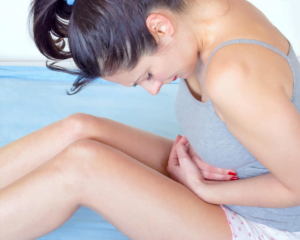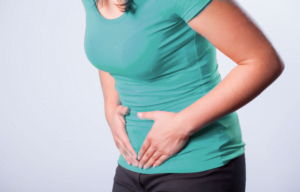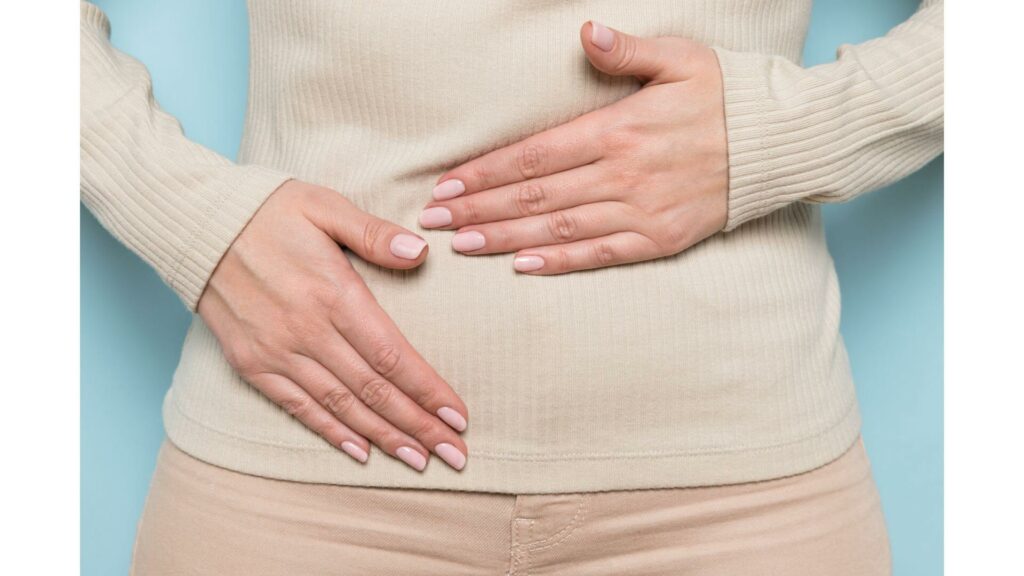Menopause is a natural phase in a woman’s life, marking the end of her reproductive years. While it comes with a variety of hormonal changes, one common and often bothersome symptom is bloating. Menopause bloating can be uncomfortable and affect a woman’s quality of life. In this blog, we’ll explore the causes, symptoms, and management strategies for menopause-related bloating.
Contents
What is Menopause Bloating?

Menopause bloating refers to the abdominal discomfort and distention that many women experience during the menopausal transition. Menopause is a natural biological process that marks the end of a woman’s reproductive years. It typically occurs in the late 40s or early 50s and is characterized by a decline in the production of reproductive hormones, primarily estrogen and progesterone.
Bloating is a sensation of fullness or tightness in the abdomen, often accompanied by an increase in abdominal size. While bloating can have various causes, during menopause, hormonal changes play a significant role in its occurrence.
Symptoms of Menopause Bloating
Menopause bloating can manifest in various ways, and its symptoms can vary among women. Bloating is a common symptom during the menopausal transition and is often associated with hormonal changes, metabolic shifts, and other factors. Here are some common symptoms of menopause bloating:
- Abdominal Distention: Women experiencing menopause bloating often report a feeling of fullness and tightness in the abdominal area. This can lead to a noticeable increase in abdominal size.
- Fluid Retention: Hormonal fluctuations during menopause can affect the body’s ability to regulate fluid balance. This may result in water retention, contributing to bloating and swelling, particularly in the abdominal region.
- Gas and Flatulence: Changes in the gut microbiota, which can be influenced by hormonal shifts, may lead to increased gas production. This can result in excessive gas and flatulence, contributing to bloating discomfort.
- Changes in Bowel Habits: Menopausal women may experience alterations in bowel habits, including constipation or diarrhea. Irregular bowel movements can contribute to bloating and a feeling of abdominal discomfort.
- Weight Gain: While not solely attributed to bloating, weight gain is a common concern during menopause. Changes in metabolism and the distribution of body fat, especially around the abdominal area, can contribute to feelings of bloating.
- Abdominal Cramping: Some women may experience mild to moderate abdominal cramping or discomfort associated with bloating during menopause.
- Feeling of Heaviness: Bloating can create a sensation of heaviness or pressure in the abdomen, making women feel uncomfortable and potentially impacting their daily activities.
It’s important to note that menopausal symptoms can vary widely among individuals. While bloating is a common complaint, some women may experience it more severely or find it to be a minor issue.
Reasons for Menopause Bloating
Menopause bloating can be attributed to a combination of hormonal, metabolic, and lifestyle factors. As women enter menopause, their bodies undergo significant changes, including a decline in estrogen and progesterone levels, which can contribute to various symptoms, including bloating. Here are some of the key reasons for menopause bloating:
- Hormonal Fluctuations: The primary cause of menopause symptoms, including bloating, is the hormonal changes that occur during menopause. Estrogen and progesterone play crucial roles in regulating fluid balance in the body. As these hormone levels decrease, fluid retention may increase, leading to bloating.
- Decreased Metabolism: Aging is associated with a natural decline in metabolism. During menopause, this decline may be more pronounced, contributing to weight gain and changes in body composition. Increased abdominal fat can lead to a feeling of bloating.
- Changes in Body Composition: Menopause often brings about changes in the distribution of body fat. Many women experience an increase in abdominal fat, and this shift in body composition can contribute to bloating and a sense of fullness.
- Digestive Issues: Hormonal fluctuations during menopause can affect the digestive system, leading to issues such as constipation, gas, and indigestion. These digestive problems can contribute to bloating.
- Water Retention: Hormonal imbalances can affect the body’s ability to regulate water balance. This may result in fluid retention, causing bloating and swelling, particularly in the extremities and abdominal area.
- Dietary Factors: Poor dietary habits, such as a high intake of salty or processed foods, can contribute to water retention and bloating. Certain foods may also exacerbate digestive issues, leading to increased bloating.
- Stress: Chronic stress can have various physiological effects on the body, including changes in digestion and fluid balance. Stress management is crucial during menopause to minimize its impact on symptoms like bloating.
- Lack of Physical Activity: A sedentary lifestyle can contribute to weight gain and a slower metabolism. Regular exercise is essential for maintaining a healthy weight, reducing abdominal fat, and preventing bloating.
It’s important to recognize that the combination of these factors can vary among individuals.
How Does Menopause Bloating Impact Someone?

Menopause bloating can impact individuals in various ways, both physically and emotionally. While it’s a common symptom during the menopausal transition, its effects can vary from person to person. Here are some ways in which menopause bloating may impact someone:
- Physical Discomfort: The most immediate impact of menopause bloating is physical discomfort. The feeling of fullness, abdominal distention, and pressure can be unpleasant and may interfere with daily activities.
- Changes in Body Image: Bloating, often accompanied by changes in weight distribution and abdominal fat accumulation, can affect a woman’s perception of her body. This may lead to alterations in body image and self-esteem.
- Clothing Discomfort: As the abdomen swells, clothing may feel tighter and less comfortable. This can be a source of frustration and may contribute to increased self-consciousness.
- Digestive Issues: Bloating is sometimes associated with digestive problems such as gas, indigestion, and irregular bowel movements. These issues can further impact someone’s physical comfort and overall well-being.
- Impact on Daily Activities: Severe bloating may limit a person’s ability to engage in daily activities, exercise, or enjoy social events. The physical discomfort and self-consciousness associated with bloating may lead to a decreased quality of life during the menopausal transition.
- Emotional Impact: Menopause is already a time of significant hormonal changes, and the discomfort associated with bloating can contribute to emotional distress. Feelings of frustration, irritability, and anxiety may be heightened.
- Sleep Disturbances: Some women may find it challenging to sleep comfortably due to bloating, impacting their overall sleep quality and contributing to fatigue and irritability.
- Impact on Intimate Relationships: Changes in body image and physical discomfort can affect intimate relationships. Open communication with partners is crucial during this time to maintain emotional support.
- Psychosocial Impact: Bloating can have broader psychosocial effects, influencing social interactions and relationships. Women may feel self-conscious in public settings or avoid certain activities due to bloating.
Treatment Methods of Menopause Bloating

Consulting with a healthcare professional is crucial for personalized advice. Here are some common treatment methods for menopause bloating:
Dietary Changes:
- Reduce Sodium Intake: High sodium levels can contribute to water retention and bloating. Limiting the consumption of salty foods, processed foods, and restaurant meals can be beneficial.
- Increase Fiber Intake: A diet rich in fiber can help regulate bowel movements and reduce constipation, which is often associated with bloating. Whole grains, fruits, and vegetables are good sources of fiber.
Hydration:
- Stay Hydrated: Drinking an adequate amount of water is essential for maintaining proper fluid balance. It may seem counterintuitive, but proper hydration can help prevent water retention and bloating.
Regular Exercise:
- Aerobic Exercise: Engaging in regular aerobic exercises, such as walking, swimming, or cycling, can help boost metabolism, reduce abdominal fat, and alleviate bloating.
Stress Management:
- Mind-Body Techniques: Practices such as yoga, meditation, and deep breathing exercises can help manage stress levels. Chronic stress can exacerbate menopausal symptoms, including bloating.
Probiotics:
- Probiotic Supplements: Probiotics are beneficial bacteria that can promote a healthy gut microbiota. Some women find relief from bloating by taking probiotic supplements or consuming probiotic-rich foods like yogurt.
Medications:
- Over-the-counter remedies: Antacids or anti-gas medications may provide relief for symptoms such as gas and indigestion.
- Prescription Medications: In some cases, healthcare providers may prescribe medications to address specific digestive issues contributing to bloating.
Hormone Replacement Therapy (HRT)
- Hormone replacement therapy, which involves the use of estrogen and, in some cases, progesterone, can help alleviate various menopausal symptoms, including bloating. However, the use of HRT comes with potential risks and benefits, and it should be discussed thoroughly with a healthcare provider.
Alternative Therapies
- Some women explore herbal supplements like black cohosh or evening primrose oil to alleviate menopausal symptoms. However, the efficacy of these supplements varies, and their use should be discussed with a healthcare provider.
It’s crucial for individuals experiencing menopause bloating to work closely with their healthcare providers to determine the most appropriate and effective treatment plan for their specific symptoms and health conditions.


